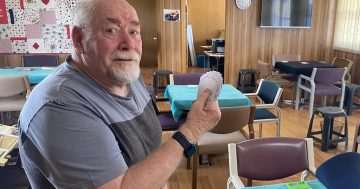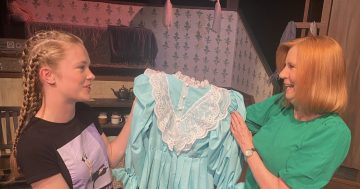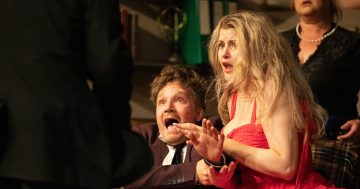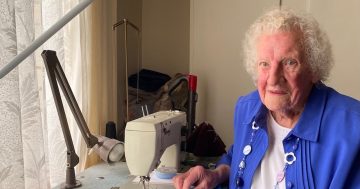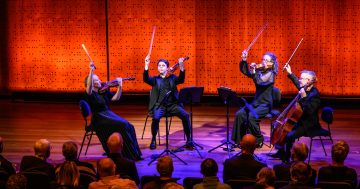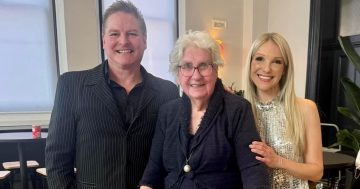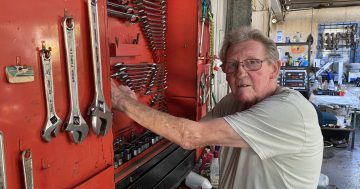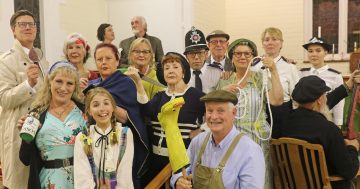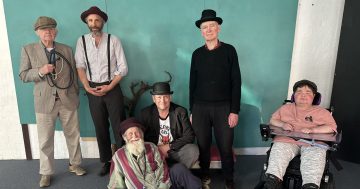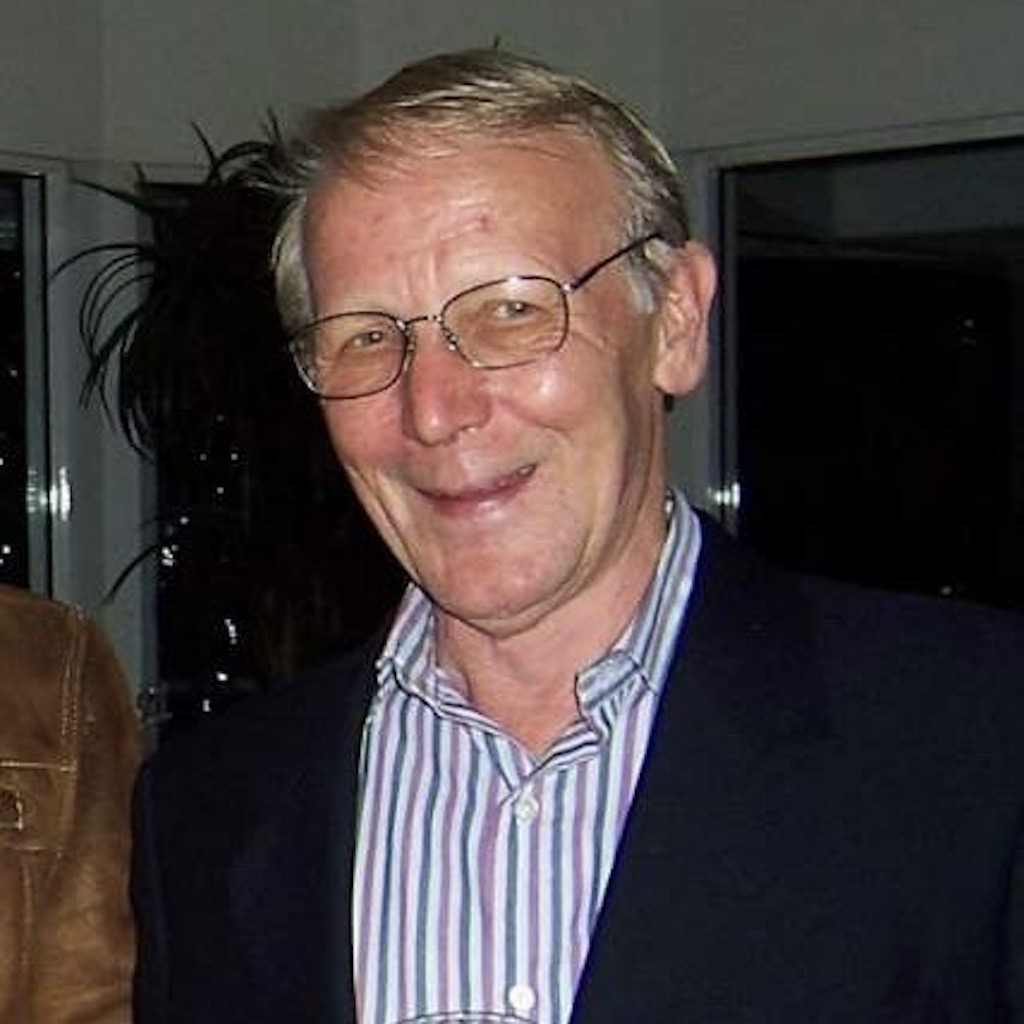
Radio and acting captured Des Storrier’s early interest, and he made a significant contribution to small businesses in Goulburn as an accountant with software programming skills. Photo: Storrier family.
Des Storrier could look at a page of dialogue, memorise it and deliver it faultlessly every time he stepped on the stage.
His consistency for good performances and versatility as an actor was a director’s dream and an audience’s delight.
Reflecting on his Lieder Theatre days, following his death on 10 July in Sydney, his wife Dr Susanne Storrier said he was happy to turn his hand to any role.
He liked comedies and romantic comedies. “He had a particular style which would suit almost any genre of acting,” she said. “He had comedic timing, he was very good at telling jokes when he was younger. But he could turn his hand to Shakespeare as well.”
The Lieder played a pivotal role in both their lives. Arriving in Goulburn as a young doctor for her general practitioner training, Susanne’s supervisor said, “Now you need to get to know the town, what would you like to do?”
“Oh, I’d like to do some theatre,” she said, not revealing she had never been on stage before. “So off I went to the Liedertafel and they were short of women at that time,” she said.
Meanwhile the Lieder was preparing a play called Black Comedy. The professionally-run theatre company had Des in the leading role and the newly-arrived young doctor was chosen as his love interest.
“The director John Spicer looked at us and said: ‘You two are not believable. Would the two of you go off and get to know one another’,” Susanne said. In the years that followed, this became Des and Susanne’s favourite story, one that was even better after they married and raised three children, James, Carolyn and Andrew.
From an earlier marriage to Marion Milson (who predeceased him) Des had another son, Mark.
Des was raised as the eldest of six children near Crookwell and later Cottawala, and attended St Mary’s Catholic Primary School. Accompanying his younger brother Raymond on his first day at school, Des was asked by a school mate for his little brother’s name. Des said, “Bill”. “And I have been Bill ever since,” Bill said. (Their mother stopped trying to revert to Raymond 30 years ago).
Des’s soprano voice as a boy developed into a fine tenor voice, evident in his singing roles with the Gilbert and Sullivan Society. He attended St Patrick’s College in Goulburn for high school, studied electrical engineering at Goulburn TAFE, then worked with AWA Radio as program presenter for several years at Dubbo and Goulburn.
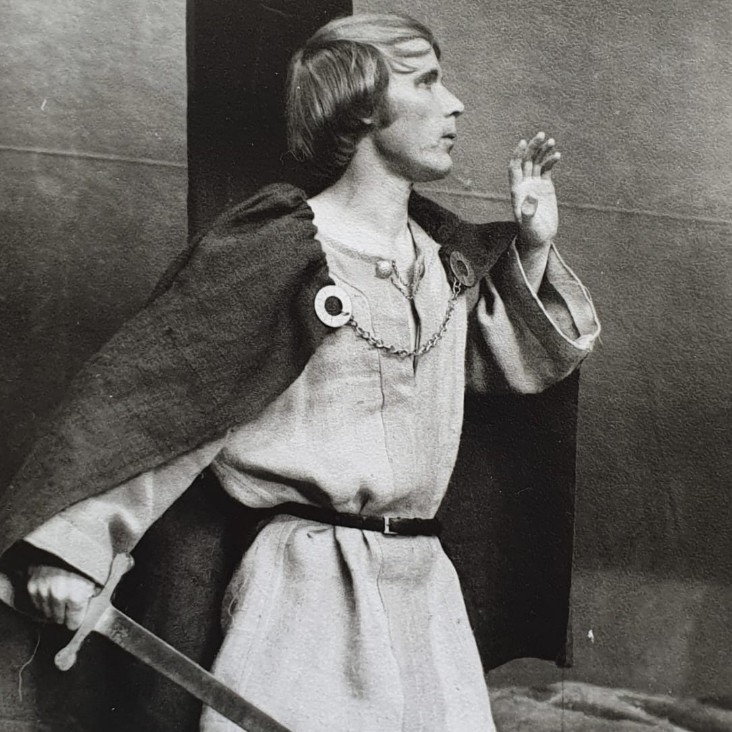
On stage, Des Storrier liked light-hearted plays, but was adept at Shakespeare too. Photo: Storrier family.
Not seeing much future in radio, he studied accountancy and qualified as a certified practising accountant. Establishing his own practice, Des could see by the late 1970s computers having an increasing role in the profession.
He bought a computer, not realising he also needed a software program, according to Bill. “There was software available, but he didn’t like it, didn’t like the way it worked, so he actually finished up writing his own,” he said. “It took a while, he studied it and wrote his own.”
When Bill switched to computers at his business, Superline Auto Spares, Des wrote a specific program for him. Susanne recalls the Department of Health enlisted his skills for work at Kenmore, as did Baxter Shoes.
Des’s interest in radio never waned. “For a number of years while he was an accountant he would do a Sunday night program, ‘Memories’ on Radio 2GN when he was training to be an accountant,” Susanne said.
He was in the thick of the on-air action as volunteers established a community FM radio station and he presented a program on Sunday mornings with the family’s vast collection of records.
Susanne said he continued with the Lieder Theatre until about 2012.
“He was doing a play and he could not remember his lines, that was the first inkling he and his family had that something was amiss,” she said.
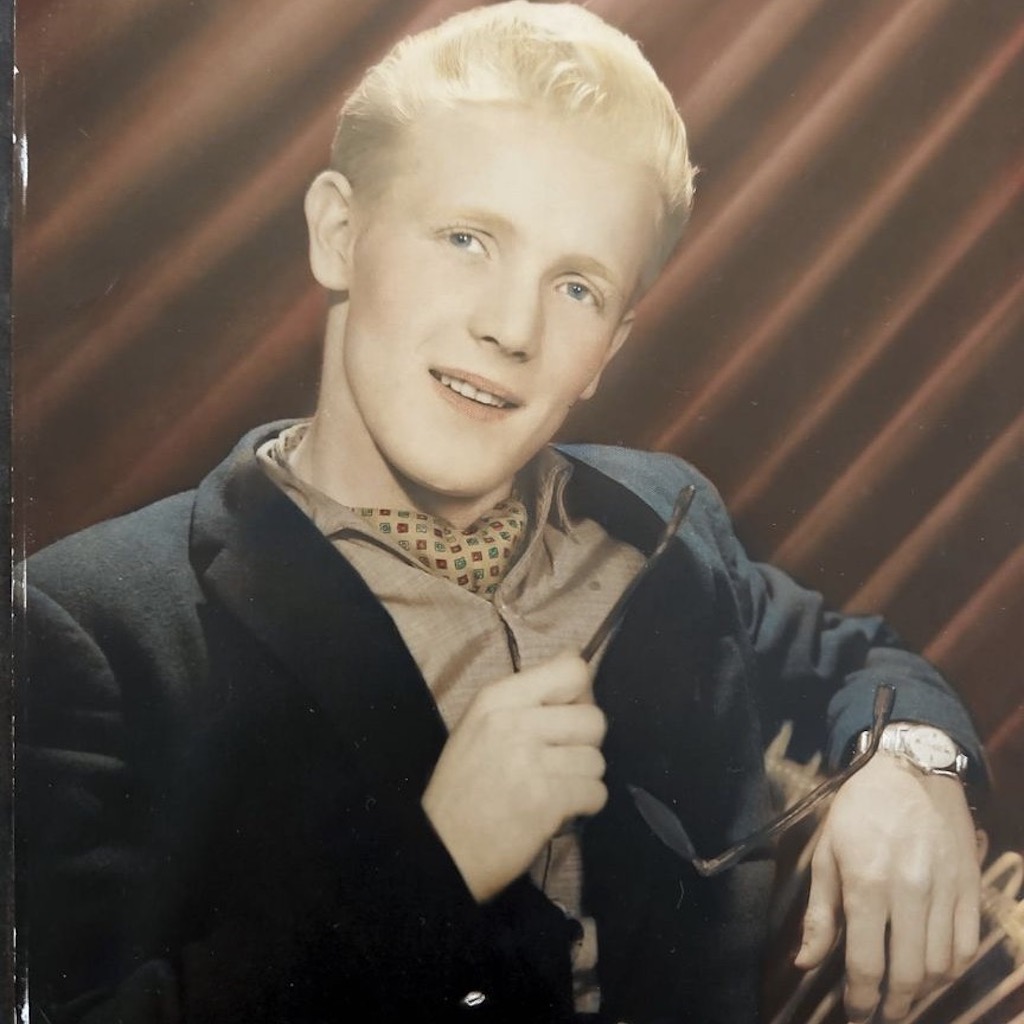
Debonair Des Storrier in his younger years. Photo: Storrier family.
“He realised he could not continue, otherwise I am sure he would still be there today. But I think he knew, he knew he couldn’t do it as well as he wanted to and backed off.”
Des wrote an historical novel, initially starting his book as a family history, but then spent about 12 years researching European and Aboriginal history. His self-published book For Their Sins is based on the story of William Storrier who was transported to Australia.
In later years having entertained so many people on stage, radio and in succinct letters in print, Des sat down of an evening with headphones on listening to music, enjoying the final act of a wonderful life.







